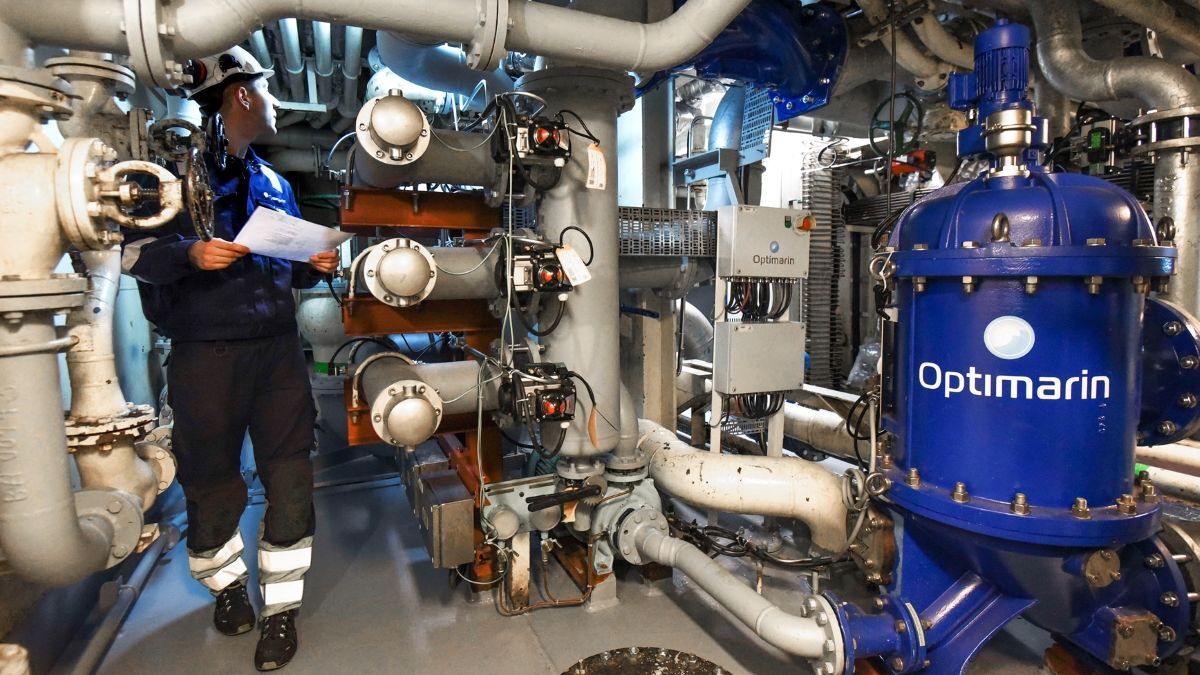Addressing the long-term compliance of a ballast water treatment systems requires consistent service support to maintain reliability, according to Optimarin vice president services Arild Stølen
Having a well-functioning ballast water treatment system (BWTS) installed on board has become a hot issue after commissioning testing became mandatory from 1 June this year under IMO rules.
Such testing, which requires ballast water sampling at the discharge line after treatment by the system to ensure these meet the D-2 standard, is necessary to obtain an International Ballast Water Management Certificate.
This document will essentially be a licence to operate once IMO’s Ballast Water Management Convention takes effect from September 2024. “Service is the lifeblood of the ballast water treatment sector and is vital to keep ships running,” according to Mr Stølen.
Furthermore, he noted that testing is also mandatory with an additional commissioning survey after a change, replacement or significant repair of the BWTS to achieve full compliance with the D-2 standard.
“It is one thing to have a compliant system installed and quite another to have it functioning properly wherever a ship is ballasting, also in ports with variable water quality,” said Mr Stølen.
“To date, few ships have been operating their BWTS on a regular basis over time. As a result, a system might not be functioning properly or as intended for several reasons, which can result in non-compliance.”
What are the key factors to mitigate the risk of non-compliance and ensure maximum BWTS uptime to minimise costly disruption and delays at ports? “It is all about the reliability of the system and consistent support through a global service network,” he explained.
Norwegian ballast water treatment specialist Optimarin has sold around 1,400 systems to date worldwide, and has recognised this need by establishing a global network of service partners with dedicated BWTS-trained engineers specialising in maintaining its systems.
This service network spans the globe with locations in the US, Brazil, the UK, Norway, Germany, Spain, the Netherlands, Romania, United Arab Emirates, China, Japan, South Korea, Singapore and Taiwan.
In addition, the company has training centres in Norway, Manila and Mumbai with a full-scale BWTS as part of the Optimarin Academy for crew training to ensure the system is run safely and efficiently on board.
Specialist certified engineers are readily available to provide round-the-clock support for Optimarin clients wherever a ship is located and whenever help is needed.
Optimarin has a centralised service centre at the head office in Stavanger, Norway that is in regular dialogue with customers to provide aftersales support.
The centre manages global spare parts distribution, with satellite warehouses at several locations outside Norway to enable a shorter response time for parts shipments, and co-ordinates service and commissioning jobs to be carried out by Optimarin engineers around the world.
Optimarin has enhanced its service offering with OptiLink, a digital cloud-based solution for monitoring and managing BWTS that enables remote 24/7 support and over-the-air software updates to keep the system working efficiently.
“Service is no longer an option with a BWTS but an essential factor to keep your fleet compliant and on track. You will not be able to operate efficiently without it,” Mr Stølen concluded.





